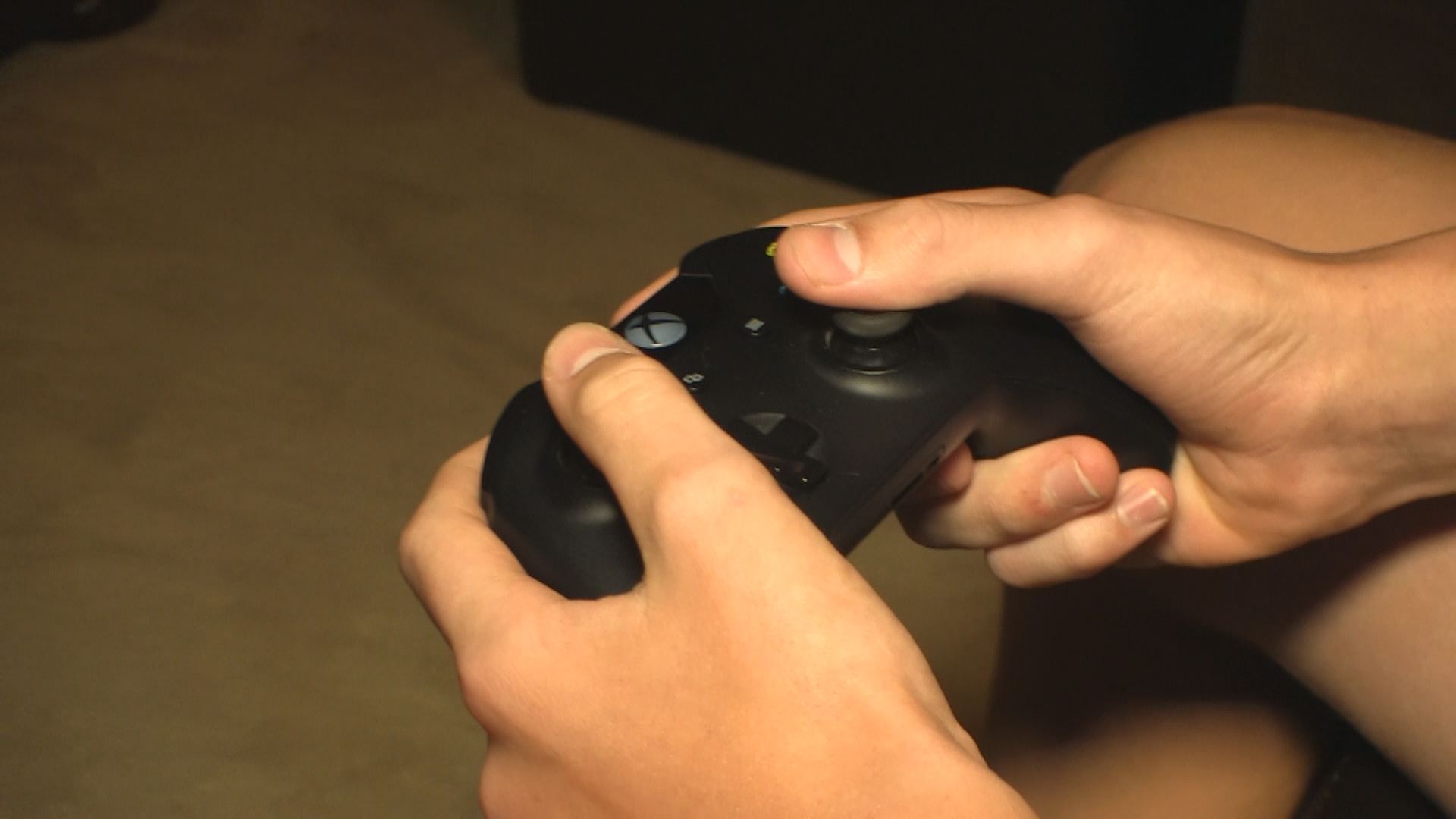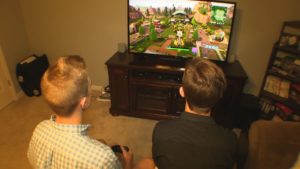- Home
- The Latest
- Do your kids have a Fortnite a ...

Some health experts say it’s as addicting as cocaine.
In case you missed it, the world ended last Sunday for millions of video gamers, but it started up again Tuesday.
Gamers obsessed with “Fortnite” anxiously awaited Chapter 2 from the company Epic Games. Fortnite, for anyone unfamiliar, is a mostly online game that is played by millions of people at any given time. Players are dropped into a world where they must survive (and generally kill) other contestants.
 It isn’t unusual for Fortnite gamers to play 3-6 hours each day leading some to wonder if the game itself is addicting. Licensed professional counselor Shervetta Porter has worked with families dealing with kids or even spouses playing the game to the point it affects other people.
It isn’t unusual for Fortnite gamers to play 3-6 hours each day leading some to wonder if the game itself is addicting. Licensed professional counselor Shervetta Porter has worked with families dealing with kids or even spouses playing the game to the point it affects other people.
“You’re not putting additives in your body but it’s doing something to the brain,” she said. “It’s like any other addiction: the serotonin and dopamine in our brains sends out those rewarding signals in the body that says ‘yes, I’m having a good time’.”
In recent years the World Health Organization has officially classified “gaming disorder” as a disease. Some health experts believe video games can be as addictive as cocaine or other drugs.
Fortnite can be played on a computer, gaming system, tablet, and smartphones.
Porter says there are things parents should look for if their kids are playing video games for hours each day.
“Is the child isolating? Or sometimes it’s husbands and wives that are doing this. Is the person isolating? Is it affecting their job or their school?” she said. “And also how much time they’re spending on the game.”
 “If it’s causing too many problems in other areas such as with family and friends, school, with completing things they normally do, if it’s affecting your day-to-day living and your daily quality of life, then it’s time to possibly get help,” Porter said.
“If it’s causing too many problems in other areas such as with family and friends, school, with completing things they normally do, if it’s affecting your day-to-day living and your daily quality of life, then it’s time to possibly get help,” Porter said.
In working with families dealing with a teenager or pre-teen playing too many hours of video games, Porter said she actually discovers underlying issues leading to the gaming disorder.
“They may be a nobody at school, but on the game they may be great.”
“Most of the time when we’re dealing with these issues in a session, the person usually has some other underlying issues such as anxiety, depression; they may be bullied at school. They may feel like an outcast. The gaming is a fantasy world where they can be any person they want to be,” she explained. “So they’re going to this place to be something else, to get the affirmation that they need, to get the attention that they need. They may be a nobody at school but on the game, they may be great.”
Porter suggests anyone fearing someone they love is struggling with gaming or internet addiction to contact a professional licensed counselor. Many family therapists are now trained to work with families struggling with the issues.

